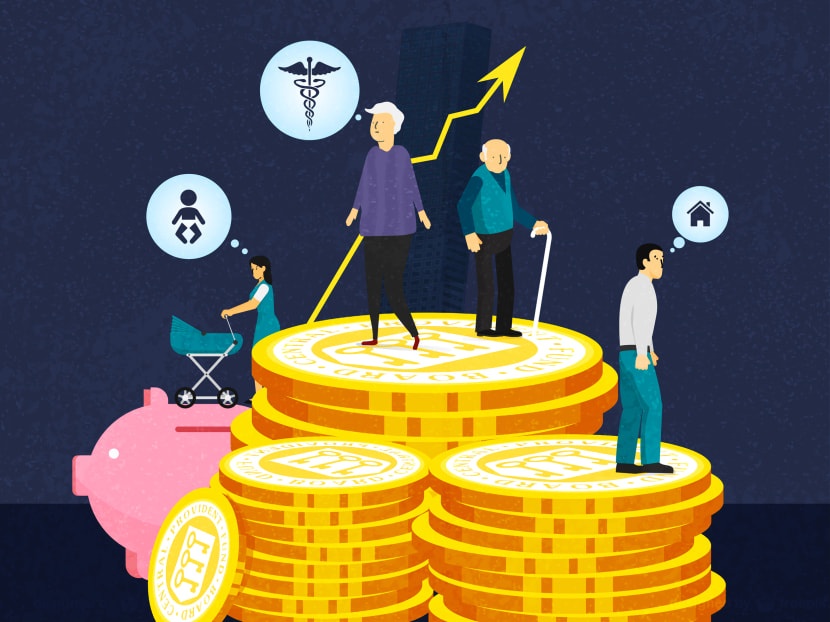Any and all potential threats to a person’s financial stability that they might experience after retiring are collectively referred to as post-retirement hazards. Post-retirement risks lead to unforeseen expenses or lower income, which put even the best-laid retirement plans in jeopardy.
The loss of a spouse, an unforeseen sickness, economic reasons, and even shifts in public policy are some of the most typical post-retirement dangers.
Early retirement planning is a valuable practice for financial planning. You must realize, nevertheless, that life is unpredictable and that anything can happen at any time. Contrary to popular belief, the earlier you retire, the more risks you may have to deal with when you stop working. This can lower the effectiveness of your retirement plan, no matter how good it is.
You strive to live the life of your dreams after retiring. You might also pick up a past-time interest again. Most importantly, after retirement, you should have a stress-free life.
But what would life be without danger and ambiguity? Several risks could arise for you when you retire. There are some risks that you might experience after retiring. These frequently pose a threat to your financial stability and impediment to your stress-free retirement strategy.
Many of these risks are often the same whether you are employed or retired. It’s a good idea to think about and analyze how these risks can affect your retirement funds, given the limited income you might make after retirement.
People can better plan for a comfortable living when they cease working by considering post-retirement hazards. That nest egg could get smaller if sufficient risk preparation isn’t made.
Types of Post-Retirement Risks
-
Death of a family member:
Personal and family issues are unanticipated personal occurrences like the protracted illness or death of a family member who needs financial support. Losing a spouse might affect pension benefits or increase a retiree’s financial obligations, particularly if there are unpaid medical bills or other debts.
-
Outliving Your Savings:
The thought of wasting all of one’s funds and being unable to meet basic demands can be extremely detrimental to retirees who intend to live off their savings. How can they determine their life expectancy and make financial plans accordingly?
According to Social Security forecasts, one in three 65-year-olds will survive over the age of 90, and one in seven will live past the age of 95.
You will need income for 37 years if you retire at the typical age of 63 and live to be 100. This is longer than many people’s whole careers at work.
People will need more money as they live longer. The longer you live, the less money you’ll have in your nest egg because retirement income has a finite shelf life.
-
Healthcare:
Your retirement savings may take a significant hit from unforeseen medical expenses and hefty out-of-pocket expenses. Health benefits from past employers are rarely provided to retirees.
According to some studies, an average retired couple turning 65 in 2021 may need to save almost $300,000 (after taxes) to cover health care costs in retirement.2 Premiums can be a significant drain on the income of typical American seniors.
Some annuity insurance allows you to add long-term care riders, which could help with the expense if you ever require care. However, there can be limits on how many payments these riders offer.
-
Housing:
Retirement-age individuals might have to downsize their current residence or, in the event of medical problems, might have to reside in a care facility. Depending on the circumstance, this may affect a person’s retirement savings.
-
Inflation:
Money usually loses value over time, so the money in your savings account now won’t be worth as much in 20 years. The cost of living in the future is impossible to forecast. Increased pay can help combat inflation if you’re employed. Your resources are frequently fixed when you retire.
Unlike other retirement income sources, Social Security payouts rise with inflation.
Inflation’s potential impact on your retirement savings over the course of your retirement years must be considered.
The only exception to the nation’s comparatively low inflation rate is the rising expense of health care, which makes things worse for retirees. The Labor Department reports that during the past 20 years, medical prices have increased more quickly than inflation.
-
Interest Rates:
Interest rate movements partly influence a person’s retirement fund’s growth. Environments with low-interest rates may be ideal for individuals trying to borrow, but they are less favorable for those looking to save.
While bonds and other fixed-income instruments like certificates of deposit have higher rates of return, higher interest rates can cause many stocks to lose value (CDs). Similar to how higher interest rates can make bonds less appealing as an investment, lower interest rates can increase the value of equities.
-
Unexpected Costs:
Family members’ unforeseen demands, such as those of their parents, children, grandkids, and siblings, could necessitate extra financial or personal support, reducing retirement resources.
No matter how financially and physically secure you are now that you are retired, you still have no idea what the future holds. Unexpected occurrences like an accident that may result in high medical bills might quickly threaten your financial stability.
Not all risks can be eliminated. However, the majority may be decreased, and many can be done by planning. Again, the best approach to dealing with the unexpected is to plan.
Working with a financial advisor you can trust is the best financial preparation you can make. They will be able to explain the specifics of Social Security, annuities, life insurance, and other matters and provide knowledgeable financial recommendations. Feel free to contact us if you require assistance with any of the topics above; we can help you with anything about retirement planning and financial security.


Recent Comments